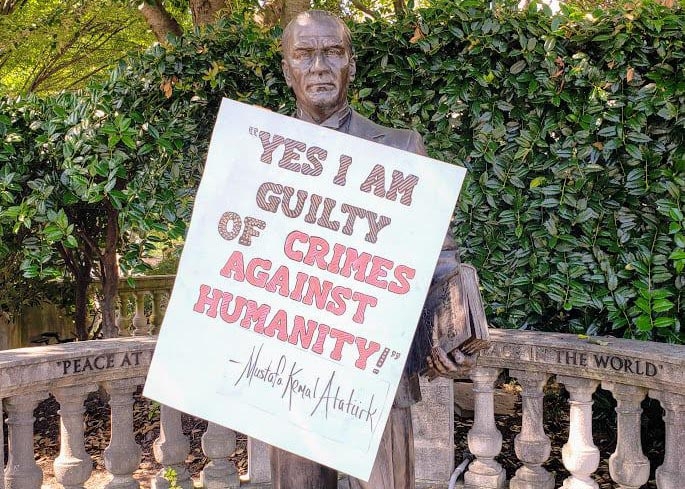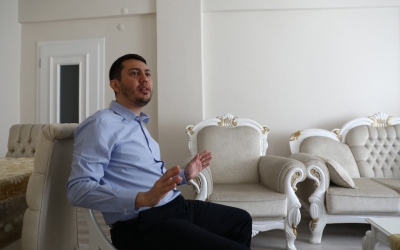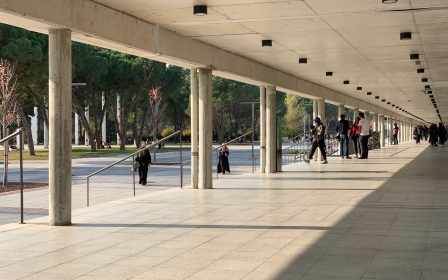Turkey denounces vandalism of Ataturk statue in US capital

Turkey has denounced vandalism that targeted a statue of the country's founder Mustafa Kemal Ataturk in Washington, the foreign ministry said.
Inspired by the Black Lives Matter protests, where statues of slave traders and confedorates were vandalised or removed from public spaces following the killing of George Floyd, a US protester attached a sign to Ataturk's statue near the Turkish embassy last week which read: "Yes, I am guilty of crimes against humanity".
Ataturk, who served as a general in the Ottoman Empire, is revered in Turkey as the founder and first president of the republic.
Armenians and Greeks claim Ataturk was responsible for acts of genocide against Christian minorities, during the final years of the Ottoman Empire.
The Greek Genocide Resource Center, which shared the photo on Facebook, said the sign was placed by someone who claimed an extended family member was killed at the hands of the Ottoman Empire.
"We've learned that the sign was placed there by someone whose extended family perished at Smyrna in 1922 and that it was a peaceful protest against a leader responsible for genocide," the center said.
While Armenians, Assyrians, and Greeks claim the Ottoman Empire carried out a systematic genocide, Turkey - the successor state - denies these claims.
Ankara says the death toll has been exaggerated and most victims died from armed resistance or starvation and disease.
Hami Aksoy, a foreign ministry spokesman, said that such "ugly acts" will not overshadow the country's "glorious history or taint [the leader's] image," Daily Sabah reported on Tuesday.
Aksoy said the embassy had launched an investigation into the matter and will take action against perpetrators.
Middle East Eye propose une couverture et une analyse indépendantes et incomparables du Moyen-Orient, de l’Afrique du Nord et d’autres régions du monde. Pour en savoir plus sur la reprise de ce contenu et les frais qui s’appliquent, veuillez remplir ce formulaire [en anglais]. Pour en savoir plus sur MEE, cliquez ici [en anglais].





